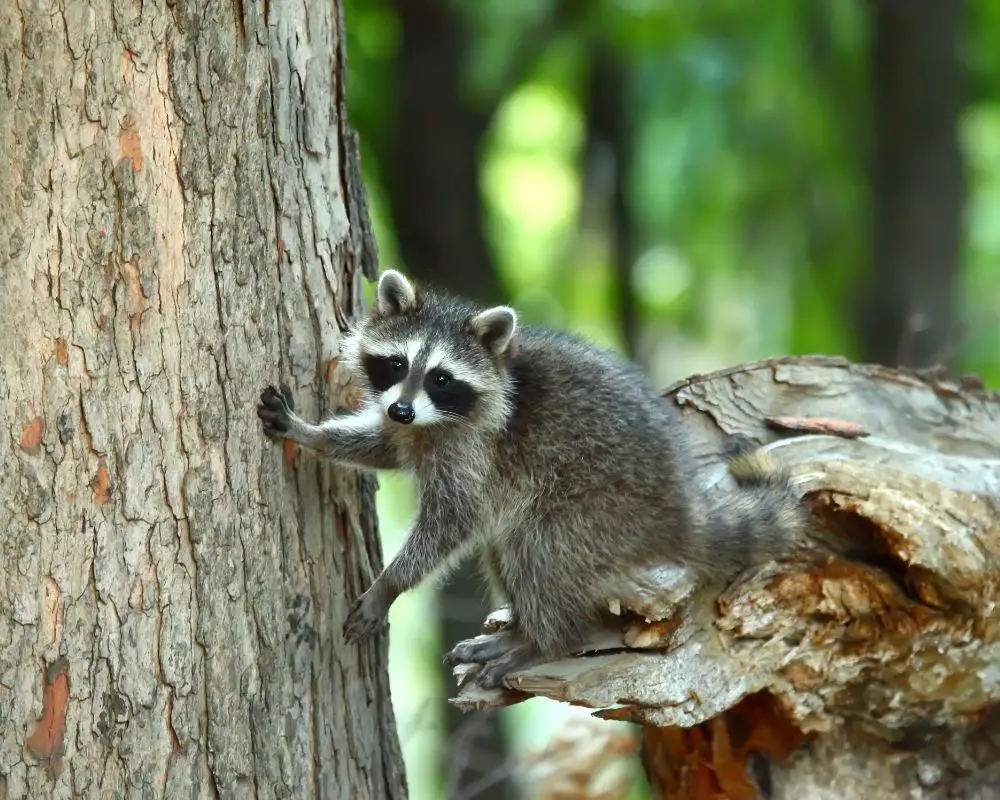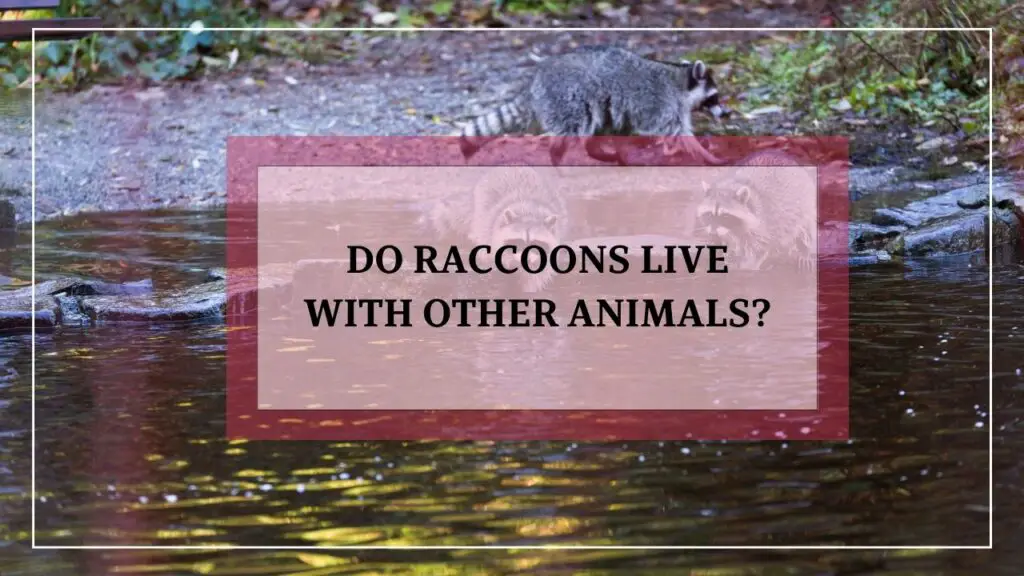Raccoons are fascinating animals known for their distinctive black and white mask-like markings on their faces and their playful, curious nature.
Found throughout North America and parts of Central America, raccoons are highly adaptable and can live in a variety of habitats, from dense forests to urban areas.
They are omnivores and opportunistic foragers, eating everything from fruits and berries to insects and small animals. But do raccoons live with other animals?
In this blog post, we will explore the social behavior of raccoons and learn about the different animals they interact with in the wild. From their solitary lives to the interactions they have with their species, we will uncover the complex world of raccoons and their relationships with other animals.
Raccoons typically live alone or in small groups, but they may share their territory with other animals such as opossums, skunks, and other raccoons.
They are also known to share dens with other animals, such as foxes or skunks. In urban areas, raccoons may also live near humans and share the same environment with domestic animals such as dogs and cats.
Raccoon social behavior

Now, let’s a little deeper into how raccoons behave socially:
Do Raccoons Tend To Live Alone Or In Small Groups?
While raccoons are typically solitary animals, living alone for most of the year, they come together during mating season, which takes place in the late winter and early spring. After mating, the males will leave the females and the females will raise their young alone.
Adult raccoons will occasionally share a den during the winter months to stay warm. However, raccoons do not form permanent social groups like some other animals do.
Raccoons’ Seasonal Changes In Social Behavior
Raccoons’ social behavior changes seasonally. In the spring, raccoons will form family groups with a dominant male and several females and their young. These groups will often share dens during the birthing and rearing seasons.
In the summer and fall, raccoons will typically be solitary again as the young raccoons reach maturity and leave their mother.
In winter, raccoons may form loose associations with other raccoons to share dens and huddle for warmth.
Raccoons and other animals
Let’s talk more about how raccoons deal with other animals:
Raccoon’s Relationship With Other Animals
They have a wide range of relationships with other animals. They are known to prey on small mammals such as mice and birds, as well as insects and other invertebrates. Raccoons are also known to raid nests of ground-nesting birds, such as chickens and ducks.
Some animals, such as foxes and coyotes, may prey on raccoons, especially young raccoons. Raccoons may also compete with other animals for food, such as skunks and opossums.
When And What Animals Live With Raccoons?
Raccoons can live with other animals if they are raised together from a young age and become accustomed to each other. Here are certain circumstances where raccoons can live with other animals:
1. In The Wild
Raccoons will often share their territory with other raccoons, but they do not typically form social bonds with other species. However, raccoons may live near or interact with other animals such as skunks, opossums, foxes, and squirrels.
2. In Urban Areas
Raccoons may also come into contact with domestic animals such as dogs and cats.
3. In Captivity
Raccoons may be housed with other animals such as birds, reptiles, or other mammals depending on the setting. This is more common in situations such as zoos or wildlife rehabilitation centers where the animals have been raised together from a young age and are accustomed to each other.
Do Raccoons Get Along With Cats And Dogs?
Raccoons and cats and dogs are not natural allies, and they may view each other as potential prey or competitors for food.
While some individual raccoons may tolerate the presence of cats or dogs, they are more likely to avoid them or defend themselves if they feel threatened. It’s best to keep raccoons, cats, and dogs separate to avoid any conflicts or harm to the animals.
What Animals Are Raccoons Afraid Of?
Raccoons are generally not afraid of animals, but they may avoid animals that are larger and more aggressive than themselves, such as bears and cougars.
They may also be cautious around domestic animals, such as dogs and cats if they perceive them as a threat.
However, raccoons are quite adaptable and can become accustomed to living near humans and other animals. [1]
The Bottom Line
In summary, raccoons are typically solitary animals but may come together during mating season and may share dens in the winter.
They have a wide range of relationships with other animals and may prey on small mammals, raid bird nests, and compete with other animals for food. Raccoons may also share their territory with other raccoons, skunks, opossums, foxes, and squirrels.
In urban areas, they may come into contact with domestic animals such as dogs and cats. Raccoons may be housed with other animals in captivity, but it’s best to keep them separate in the wild to avoid conflicts or harm to the animals.

